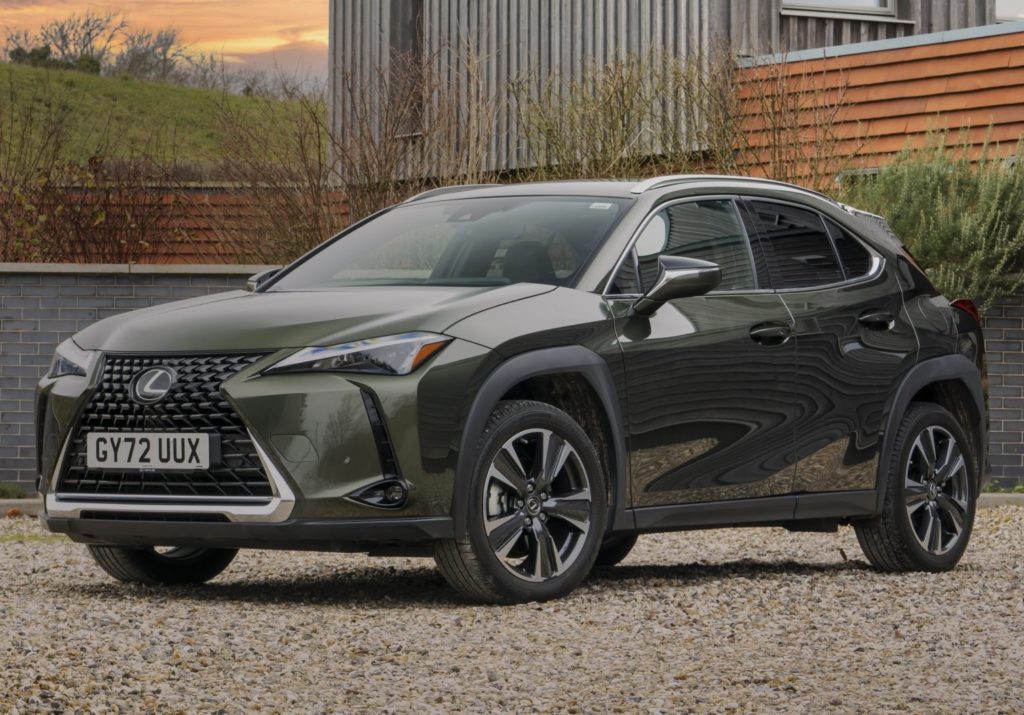
Pubs are a good place to chew the fat over cars.
My Lexus was on the table and I was asked what the brand was all about. Put simply it is a posh Toyota, launched here by the Japanese giant in 1990 to challenge Mercedes-Benz. Think Bond Street chic rather than High Street chain.
With that friends joined us and commented on the smart looking Lexus in the car park. They have a BMW X1, but thought the UX more stylish, which it is, lots of slashes and creases, and a huge zig-zag grille that shouts ‘look at me’.
Yet looks alone don’t sell cars and Lexus has never threatened the German premium trio and certainly not enjoyed the meteoric rise of Audi which was making its mark around the same time.
UX is the smallest of the Lexus crossover range and has the familiar hybrid set up of a 2-litre petrol engine and self charging electric motor. Parent company Toyota is the king of hybrid so this is a highly efficient unit with low emissions and strong economy. It is not a plug-in so electric only power is limited to low speed short stints around town.
UX is, however, a good bet for company drivers and business users – low emissions have their advantages when it comes to tax breaks.
So what’s on offer once past the rakish body? If anything the cabin is even better. While German rivals tend to be conservative, particularly with dashboard design, the Lexus stylists have been braver with lots of shapes and contours, and a variety of shades.
The layout is easy on the eye and a far cry from the UX I drove after its launch in 2019. The centre piece was the infotainment system, a rather ropey affair, with a touch screen that could also be operated from a keypad with a cursor that danced around, landing in all the wrong places and was a nightmare to use while driving.
Thankfully it is no more. The whole system has been ripped out, the keypad gone, replaced by a larger, more efficient 12.3in touchscreen, (8in for lower models). Voice control has also been upgraded and now does what it is asked, adjusting the heating if you don’t want to use the clear and tactile row of buttons.
Last week I got all grumpy over the lack of a digital speedo in the Toyota Yaris Cross, well no such worries with UX which has a bold digital readout in the driver’s binnacle and can be changed to a red sporty layout if in the mood for speed.
On the subject of speed UX is a bit fruity with foot flat to the floor, nothing to bother those German rivals, but a reminder that hybrid provides enough clout when needed while exceeding the mark on economy. Officially UX is good for 51mpg and you can trust that because I nailed it.
And I liked the way it handled, holding its line when pushed through the twists while the suspension did a fine job soaking up bumps and potholes.
With prices that go way past 40 grand for the top models we expect decent quality and UX does not fall short. Materials are high grade and the only noise intrusion comes from the chunky tyres and that is not much of an issue.
If UX has a small failing it is space. Rear legroom is only so-so with the front seats set for average height people, and then there is the boot. It has a double floor but is still small, smaller even than the little Yaris Cross. The underfloor hybrid battery pack has made an impact and as there is no room under the bonnet for the car’s main battery it takes up a chunk of space in the boot.
Be careful you do not forget something stored in one of seven little compartments under the boot floor which goes to show how they have tried to use every inch of available space.
UX is the best seller in the Lexus range and it is easy to see why. This is a solid all round package with top notch hybrid technology.
I particularly like the Yaris Cross GR reviewed last week but there is a marked difference in quality, and price of course, but you can get a UX for £35k, around £5000 more than the Yaris which is worth the money.
As a footnote I asked my friends if they would be tempted to swap their BMW for the UX. The answer: No chance. Says it all, doesn’t it.
Fast facts
UX 250h Premium Plus
£40,660 (starts £34,770)
2-litre; 288bhp with electric motor
0-62mph 8.5secs; 110mph
51.3mpg combined
125g/km, 1st tax £210
Insurance group 12
Boot 320 litres